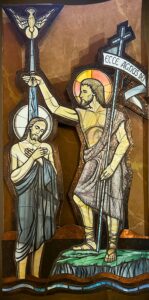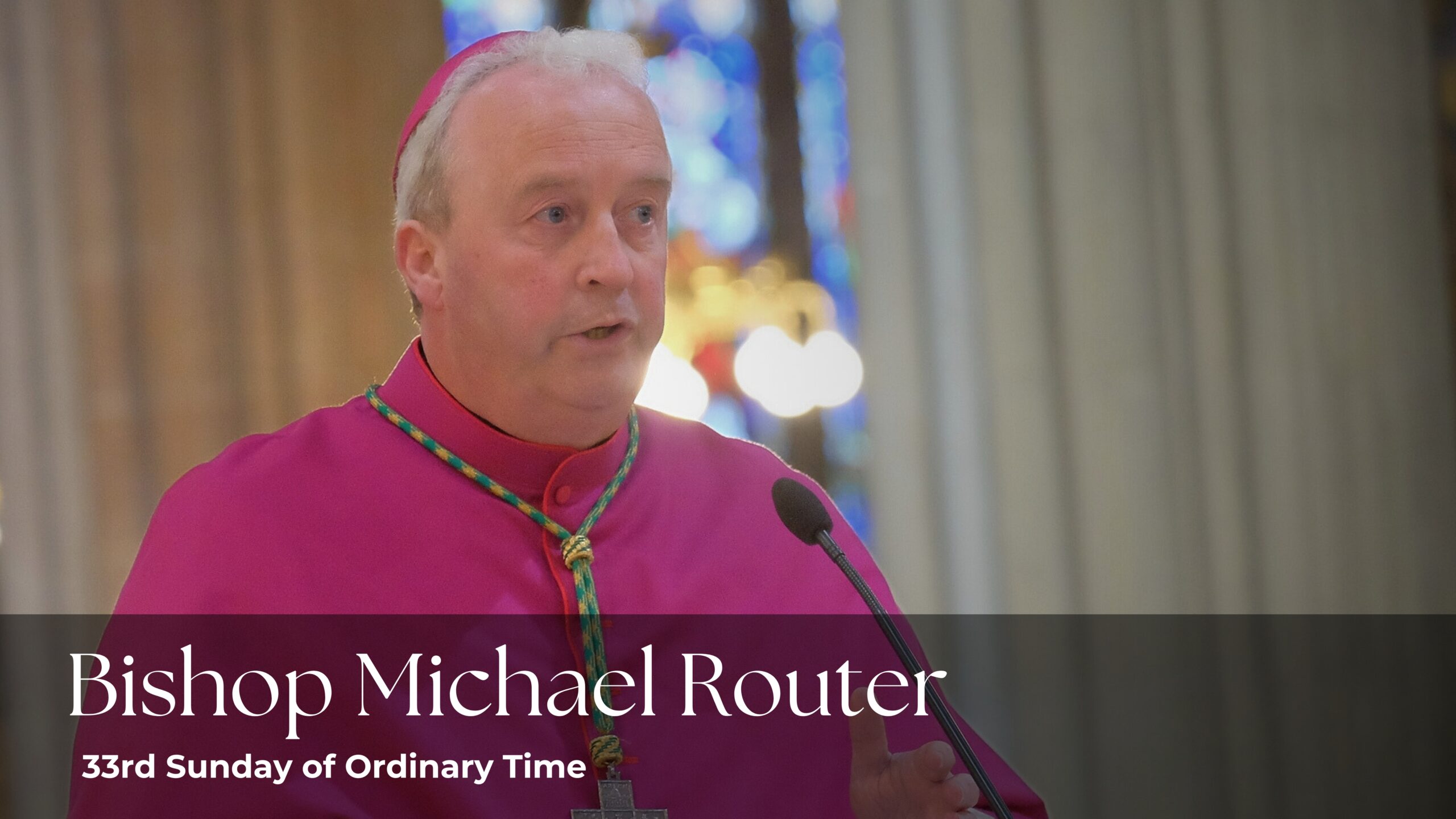Bishop Michael Looks Forward to the Jubilee Year of Hope and Welcome’s the Final Document of the Synod Synodality
On the 33rd Sunday of Ordinary Time, Bishop Michael preached a homily at St. Patrick’s Church, Dundalk that explored the themes of hope and renewal in the Church today. His reflections drew from the readings of the day, highlighting the challenging imagery of the end times offered in the readings suggesting that the message of Christian hope offered an inspiring message for our modern world.
Some themes from Bishop Michael’s Homily for reflection
Finding Hope Amid Tribulation
Bishop Michael drew attention to the first reading from the Book of Daniel and the Gospel of Mark and how they speak of troubling times. Despite our struggles, Bishop Router emphasised the transformative power of Christ’s life, death, and resurrection. The Christian hope that we possess is unquenchable—it is a hope that promises justice, peace, and eternal life, even in the face of sin and suffering. In a world often marked by despair, our faith assures us that evil will not have the final word, that war will end, and that death is not the end of our journey.
 A New Path Forward: Reflections on the Synod
A New Path Forward: Reflections on the Synod
The recent Synod on Synodality, which concluded in late October, marked a significant moment of reflection and discernment for the global Church. Bishop Router acknowledged that while the Church, like any human institution, is affected by sin and imperfection, it is called to continual renewal guided by the Holy Spirit. The Synod’s final document offers a blueprint for action, outlining steps towards a more inclusive, accountable, and mission-driven Church.
Listening to the Voices of Survivors
A key aspect of the Synod’s findings is the Church’s commitment to acknowledging past wrongs, particularly the grave scandal of abuse. Bishop Router welcomed the call for the Church to listen attentively to survivors, emphasising that true renewal must begin with healing and reconciliation. Accountability and transparency are not merely optional; they are essential if we are to restore trust and move forward together.
Co-responsibility and Inclusive Decision-Making
The Synod’s emphasis on co-responsibility marks a pivotal shift towards involving all the baptised in the mission of the Church. Bishop Michael highlighted the importance of mandatory Pastoral Councils in every diocese and parish. These councils will ensure that decision-making is collective and rooted in the lived experience of the entire faith community, not limited to a select few. This inclusive approach is vital for fostering a culture of accountability and building strong, faith-filled communities.
Empowering Women and Strengthening Leadership Roles
Bishop Michael expressed hope that the Synod’s recommendations will lead to greater involvement of women in leadership roles within the Church. The introduction of the formal Ministry of Catechist offers a significant opportunity for women to contribute meaningfully to faith formation and liturgical celebrations. Their voices are essential in shaping the Church’s future, and their active participation will enrich our shared mission.
Embracing Diversity and Forming the Next Generation
The Synod’s call for a more inclusive Church extends to young people, the marginalised, and those of different faiths. By valuing and listening to these voices, we broaden our scope for outreach and witness to the love of Christ in our diverse world. Ongoing faith formation will be crucial, not only for laypeople but also for bishops and priests. The Synod’s recommendations for clergy training underscore the need for a deeper understanding of synodality and ecumenism, equipping Church leaders to foster unity and shared responsibility.
A Message of Hope in the Face of Criticism
Bishop Michael acknowledged that the Synod has faced criticism, both from within the Church and beyond. Some have dismissed its findings, fearing change or clinging to the status quo. Yet all are encouraged us to see beyond the negativity and recognise the abundant fruits of the Synod’s work. The blueprint laid out in its final report is one of hope, offering a transformative vision for the Church that is inclusive, compassionate, and forward-looking.
The challenge now lies in our willingness to implement these recommendations. As the People of God, we are called to bring the hope of Christ into our world—a hope that is desperately needed in these troubled times. By embracing the Synod’s vision, we have the opportunity to renew the Church’s presence, making it a source of healing and light in the darkness.
Conclusion: Bringing the Light of Christ to a Troubled World
Bishop Michael’s homily on the 33rd Sunday of Ordinary Time was a timely reminder of the hope that defines our Christian faith, even amid uncertainty and tribulation. The recent Synod offers a roadmap for the Church’s renewal, grounded in listening, co-responsibility, and a commitment to healing. As we look to the future, let us embrace this vision with faith and courage, trusting in the promise of Christ’s unending hope and working together to build a Church that truly reflects His love and mercy.




You must be logged in to post a comment.